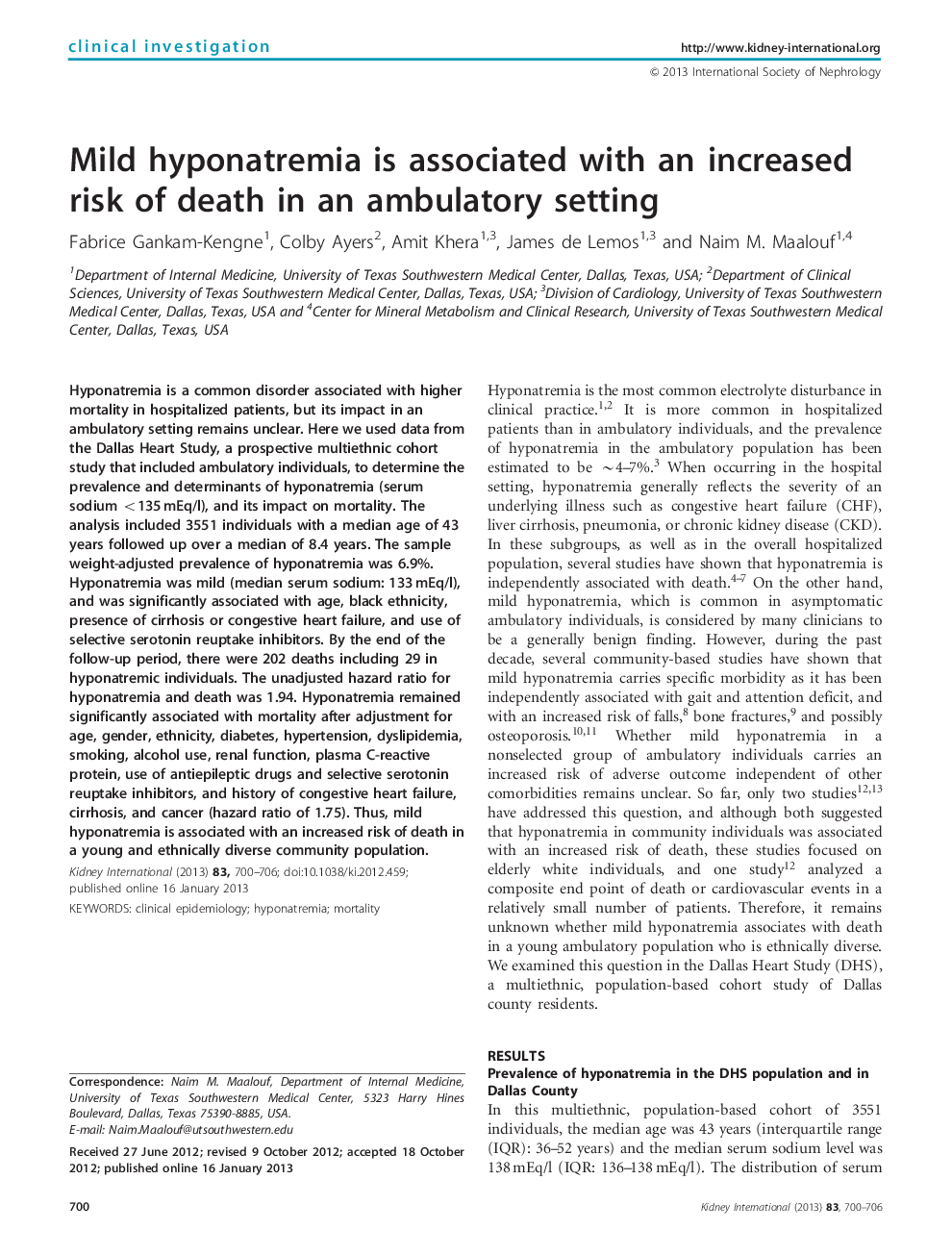| Article ID | Journal | Published Year | Pages | File Type |
|---|---|---|---|---|
| 6162180 | Kidney International | 2013 | 7 Pages |
Abstract
Hyponatremia is a common disorder associated with higher mortality in hospitalized patients, but its impact in an ambulatory setting remains unclear. Here we used data from the Dallas Heart Study, a prospective multiethnic cohort study that included ambulatory individuals, to determine the prevalence and determinants of hyponatremia (serum sodium <135Â mEq/l), and its impact on mortality. The analysis included 3551 individuals with a median age of 43 years followed up over a median of 8.4 years. The sample weight-adjusted prevalence of hyponatremia was 6.9%. Hyponatremia was mild (median serum sodium: 133Â mEq/l), and was significantly associated with age, black ethnicity, presence of cirrhosis or congestive heart failure, and use of selective serotonin reuptake inhibitors. By the end of the follow-up period, there were 202 deaths including 29 in hyponatremic individuals. The unadjusted hazard ratio for hyponatremia and death was 1.94. Hyponatremia remained significantly associated with mortality after adjustment for age, gender, ethnicity, diabetes, hypertension, dyslipidemia, smoking, alcohol use, renal function, plasma C-reactive protein, use of antiepileptic drugs and selective serotonin reuptake inhibitors, and history of congestive heart failure, cirrhosis, and cancer (hazard ratio of 1.75). Thus, mild hyponatremia is associated with an increased risk of death in a young and ethnically diverse community population.
Related Topics
Health Sciences
Medicine and Dentistry
Nephrology
Authors
Fabrice Gankam-Kengne, Colby Ayers, Amit Khera, James de Lemos, Naim M. Maalouf,
